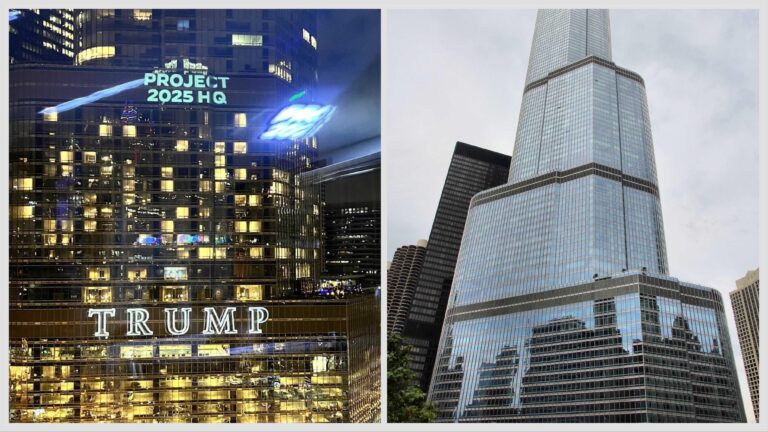Chicago’s Political Outlook for 2025: Key Developments and Influences
New Challenges Facing Chicago’s Mayoral Leadership and Their Governance Implications
As Chicago approaches 2025, the city’s mayoral office confronts a complex set of challenges that could redefine municipal governance. Leaders must adeptly manage evolving public safety concerns while responding to rapid economic shifts and demographic changes. Critical issues such as the rising cost of housing, climate change adaptation, and modernizing transportation infrastructure demand innovative policy solutions and stronger community partnerships. Additionally, there is mounting public demand for clear governance and inclusive civic participation, compelling the mayor’s office to enhance engagement strategies.
Key areas poised to drive transformation in city management include:
- Reforming Public Safety: Striking a balance between effective law enforcement and building community trust remains a delicate and urgent task.
- Addressing Economic Disparities: Narrowing the socioeconomic divide between affluent districts and underserved neighborhoods is critical for equitable growth.
- Enhancing Climate Resilience: Developing infrastructure to combat urban flooding, heat waves, and environmental sustainability is increasingly vital.
- Upgrading Infrastructure: Investing in transit systems and digital technologies to support future urban demands.
| Challenge | Governance Effect | Implementation Horizon |
|---|---|---|
| Public Safety Reform | Policy adjustments with enhanced community oversight | Immediate to short-term (1-2 years) |
| Housing Affordability | Expanded funding sources and zoning policy changes | Mid-term (3-5 years) |
| Climate Adaptation | Infrastructure improvements and emergency response planning | Long-term (5+ years) |
| Technology Integration | Smart city initiatives and open data policies | Continuous |
Chicago City Council’s Influence on Policy and Legislative Priorities
The Chicago City Council, composed of seasoned incumbents and emerging leaders, will play a decisive role in shaping the city’s policy landscape through 2025. The council’s decisions will be pivotal in addressing urgent matters such as affordable housing, public safety reforms, and economic revitalization. Their legislative agenda will directly impact budget distribution and the city’s approach to social equity and post-pandemic recovery.
Focus areas expected to dominate council discussions include:
- Climate Action Policies: Initiatives aimed at reducing carbon emissions and promoting sustainability.
- Transportation Growth: Debates over expanding mass transit options versus improving road infrastructure.
- Community-Oriented Policing: Reforms to enhance police accountability and community relations.
- Support for Local Entrepreneurs: Programs designed to stimulate small business growth and neighborhood revitalization.
| Policy Area | Anticipated Council Measures | Projected Outcomes by 2026 |
|---|---|---|
| Affordable Housing | Expanded zoning reforms and developer incentives | 10% increase in housing units; rent stabilization efforts |
| Public Safety | Revised policing budgets and community programs | Reduced crime rates and improved public trust |
| Economic Development | Enhanced support for minority-owned businesses | Growth in local entrepreneurship and job creation |
Fiscal Priorities and Budgetary Approaches to Watch in 2025
Chicago’s financial strategy for 2025 will require balancing immediate recovery needs with sustainable long-term investments. City officials are expected to prioritize funding for public safety, infrastructure renewal, and affordable housing, while also emphasizing fiscal obligation and transparency. Innovative approaches such as diversifying revenue streams and fostering public-private partnerships will be critical to managing budget constraints amid rising costs.
Emerging fiscal strategies include:
- Broadening Revenue Sources: Identifying alternatives beyond conventional property and sales taxes.
- Managing Debt: Ensuring capital projects are balanced with long-term financial obligations.
- Controlling Expenditures: Strengthening oversight on administrative and program spending.
- Leveraging Private Investment: Utilizing partnerships to supplement public funding.
| Budget Focus | Estimated 2025 Funding | Primary Challenge |
|---|---|---|
| Public Safety | $350 million | Balancing reform initiatives with adequate funding |
| Infrastructure | $275 million | Addressing aging facilities amid rising costs |
| Affordable Housing | $200 million | Meeting demand that outpaces supply |
Voter Engagement and Community Mobilization Ahead of Crucial Elections
Community activism in Chicago is reaching new heights as grassroots groups and neighborhood coalitions energize voters around localized concerns such as housing affordability,public safety,and education reform. These organizations are harnessing digital platforms, public forums, and direct outreach to galvanize participation, signaling a shift toward a more engaged and diverse electorate. Younger generations and minority communities are emerging as influential voting blocs, reshaping the city’s political dynamics.
Current trends suggest increased voter turnout, especially among historically underrepresented groups. Early polling highlights a preference for candidates emphasizing transparency, social equity, and environmental sustainability. Below is an overview of projected voter engagement growth by demographic segment for the 2025 election cycle:
| Demographic Group | Projected Turnout Increase | Primary Issues Motivating Voters |
|---|---|---|
| Urban Millennials | +12% | Climate action, affordable housing |
| Latinx Communities | +15% | Education reform, immigration policies |
| Suburban Families | +8% | Public safety, economic development |
| Senior Citizens | +5% | Healthcare access, social services |
Final Thoughts: Navigating Chicago’s Political Future in 2025
As Chicago moves into 2025, its political surroundings is poised for significant shifts that will influence governance, policy, and community life. From mayoral leadership and city council deliberations to voter mobilization and budgetary decisions, the coming year promises to be a defining period for the city’s trajectory. Residents and stakeholders should remain attentive to these evolving narratives, which will have lasting impacts beyond Chicago’s borders. Ongoing coverage will continue to provide insights into these critical developments shaping the Windy City’s future.





